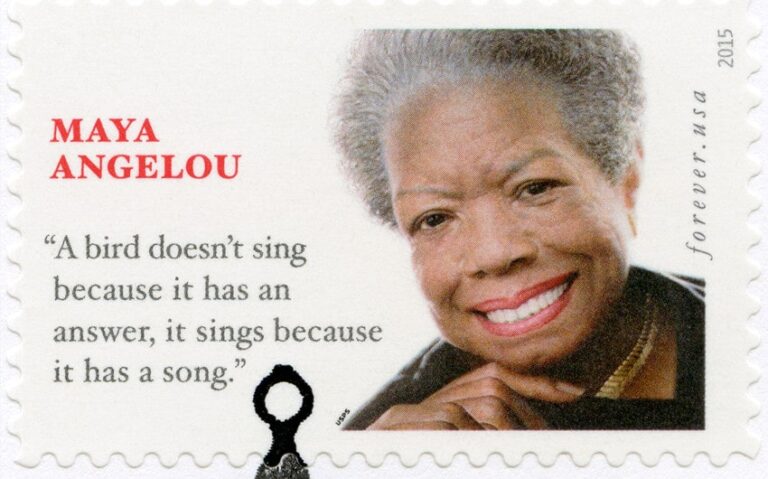What’s the Key to Happiness? A Gentle Exploration of What Truly Brings Joy
We all want to be happy. It’s the quiet, persistent hope behind almost everything we do—how we love, what we seek, who we become. But the question remains: what’s the key to happiness? Is there one universal truth, or is it more personal than that? The answer, like happiness itself, is both simple and complex. In this article, we’ll explore what contributes to true happiness—not just fleeting pleasure, but a grounded sense of joy that stays with you, even in life’s quieter seasons.
The Search for Happiness: Why the Question Matters
Asking “what’s the key to happiness?” isn’t just philosophical—it’s deeply practical. When you understand what truly nourishes your spirit, you begin making decisions that align with your well-being. You stop chasing empty goals and start creating a life that feels good from the inside out. This question matters because happiness isn’t just about feeling good—it’s about living well, with intention and heart.
Across time and culture, people have asked this question. From ancient philosophers to modern psychologists, the answers often echo a similar truth: happiness isn’t something you stumble upon—it’s something you build, day by day, choice by choice, from the inside out.
Is There One Key—or Many Paths to Joy?
Happiness doesn’t wear the same face for everyone. What brings deep joy to one person may feel empty to another. That’s why the key to happiness is not a single answer—it’s a collection of principles and practices that, when honored, open the door to emotional well-being. These include connection, purpose, gratitude, presence, and alignment with your true self.
The path is personal. Some people find happiness in solitude and simplicity, others through relationships and adventure. But underneath these different paths lie shared elements—mindsets, habits, and values—that support a joyful, fulfilling life. Let’s explore them one by one.
Self-Awareness: Knowing What Truly Matters to You
The first step toward happiness is knowing yourself. When you understand what lights you up, what drains you, and what you genuinely care about, you start living in alignment. Self-awareness helps you stop comparing, people-pleasing, or following paths that were never yours to begin with.
Happiness grows when you live with integrity—when your actions reflect your values. Journaling, therapy, and quiet reflection all help you reconnect with your inner compass. And when you know who you are, you stop reaching for happiness in the wrong places—and start creating it from within.
Gratitude: The Power of Appreciation in Shaping Happiness
Gratitude is one of the most powerful keys to happiness. It shifts your focus from what’s missing to what’s present. It softens frustration and invites joy into even the smallest moments. And the best part? It doesn’t require anything external to change—just your perspective.
Practicing gratitude daily—whether through journaling, prayer, or a quiet mental note—rewires your brain to notice more of what’s good. And over time, this noticing turns into a sense of contentment. Gratitude doesn’t erase pain, but it offers a cushion of peace to hold you through it. It reminds you: even here, even now, there is something beautiful.
Relationships: Human Connection as the Heart of Well-Being
One of the most consistent findings in happiness research is this: connection matters. Strong, loving relationships—whether romantic, platonic, or familial—are a cornerstone of emotional health. We are wired for connection, and when we feel seen, valued, and safe, happiness follows.
This doesn’t mean you need a big social circle. One or two deeply supportive relationships can make all the difference. What matters is the quality, not the quantity. Investing in people, showing up with presence, and allowing yourself to be loved—these are quiet, steady keys to a joyful life.
Purpose and Meaning: Why a Life of Depth Leads to Joy
Happiness isn’t just about pleasure—it’s about purpose. People who feel their lives have meaning report higher well-being, even during hard times. When you feel that your life matters—that you’re contributing something good—you experience a deeper kind of joy: fulfillment.
Your purpose doesn’t have to be grand. It could be raising kind children, caring for animals, creating art, or making people laugh. What matters is that it feels meaningful to you. Aligning your actions with your values, and doing what feels important to your heart, builds a kind of happiness that lasts longer than any high.
Resilience: Bouncing Back and Finding Light After the Dark
True happiness doesn’t mean avoiding pain—it means knowing how to navigate it. Resilience is the ability to feel your feelings, learn from hardship, and return to yourself. It’s what allows happiness to return after sorrow, like the sun after a storm.
Building resilience involves self-compassion, support systems, and a belief that healing is possible. It’s not about being unshakable—it’s about knowing how to regroup. Resilient people don’t chase constant happiness—they create space for all emotions, and let joy return in its time. That’s a powerful key to well-being: trusting that you can rise again.
Presence: Living in the Moment as an Anchor to Joy
Happiness lives in the now. When you’re caught in regret or worry, joy becomes elusive. But when you drop into the present moment—savoring a sip of tea, the feel of sunlight, or a shared laugh—you begin to notice how much beauty is already here.
Mindfulness is one of the most accessible happiness tools. It invites you to slow down, tune in, and simply be. You don’t need to fix your life to feel joy—you just need to stop rushing past it. The present is the only place where happiness can be experienced. And that makes it the most sacred place to return to.
Freedom: The Link Between Autonomy and Emotional Peace
Feeling free—to choose, to express, to be yourself—is a vital part of happiness. When you feel trapped in roles, expectations, or fear, joy gets stifled. Emotional freedom comes from setting boundaries, honoring your needs, and trusting your own voice.
This doesn’t mean abandoning responsibilities. It means living in a way that’s true to you. When you make choices that reflect your values—not just what’s expected—you start to feel more alive. Freedom creates the space where happiness can stretch, grow, and move naturally through your life.
Health and Simplicity: The Often-Overlooked Foundations
It’s hard to feel happy when your body is in distress. Sleep, movement, nutrition, and rest aren’t just health habits—they’re happiness habits. Taking care of your body is taking care of your mind and spirit, too. And when your body feels supported, your mood follows.
Simplicity also plays a role. A life filled with clutter—mental, emotional, or physical—leaves little room for peace. When you simplify your space, your schedule, and your priorities, you create room for joy. Happiness doesn’t always need more. Sometimes, it just needs less.
Mindset: How You Think Shapes How You Feel
Your mindset shapes how you interpret life. A growth mindset says, “I can learn from this.” A fixed mindset says, “This is just how it is.” Choosing a mindset that supports hope, possibility, and self-kindness is one of the most powerful keys to emotional well-being.
This doesn’t mean denying hard realities. It means choosing interpretations that empower, not diminish. It means asking, “What else could this mean?” or “What would a kind perspective sound like?” Over time, mindset becomes your emotional landscape. And a compassionate, hopeful one is fertile ground for joy.
Daily Practices That Nurture Lasting Happiness
- Morning rituals: Start the day with gratitude, breathwork, or gentle movement.
- Connection: Reach out to a loved one—even a short message makes a difference.
- Joyful moments: Do one thing each day that makes you smile, just because.
- Reflection: End the day by noting what felt good or meaningful.
- Self-compassion: Speak to yourself like someone you love.
Final Reflection: Happiness as a Practice, Not a Destination
So—what’s the key to happiness? It’s not a single key. It’s a ring of many, and the ones that unlock your joy may be different from someone else’s. But they all share a theme: presence, connection, self-awareness, and gentle intention. Happiness is not a place you reach. It’s a way you walk.
You don’t need to be perfect. You just need to stay close to what matters, make room for what feels right, and keep choosing joy in the small moments. Because in the end, happiness isn’t something you find—it’s something you practice. And it’s always, always worth it.






